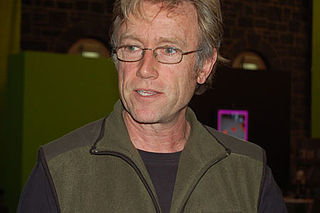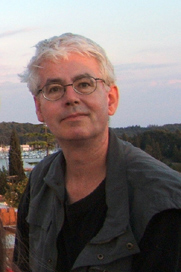Related Research Articles
The Hopwood Awards are a major scholarship program at the University of Michigan, founded by Avery Hopwood.

The Pulitzer Prizes are two-dozen annual awards given by Columbia University in New York for achievements in the United States in "journalism, arts and letters." They were established in 1917 by the will of Joseph Pulitzer, who had made his fortune as a newspaper publisher.

A short story is a piece of prose fiction. It can typically be read in a single sitting and focuses on a self-contained incident or series of linked incidents, with the intent of evoking a single effect or mood. The short story is one of the oldest types of literature and has existed in the form of legends, mythic tales, folk tales, fairy tales, tall tales, fables and anecdotes in various ancient communities around the world. The modern short story developed in the early 19th century.
Writers and Illustrators of the Future is a science fiction and fantasy story and art contest that was established by L. Ron Hubbard in 1983 as Writers of the Future. A sister contest, Illustrators of the Future, was launched in 1988 and presents awards for science fiction art. Hubbard characterized the contest as a way of "giving back" to the field that had defined his professional writing life. The contest has no entry fee.

The Pulitzer Prize for Fiction is one of the seven American Pulitzer Prizes that are annually awarded for Letters, Drama, and Music. It recognizes distinguished fiction by an American author, preferably dealing with American life, published during the preceding calendar year.

Philip José Farmer was an American author known for his science fiction and fantasy novels and short stories.

A novella is a narrative prose fiction whose length is shorter than most novels, but longer than most novelettes and short stories. The English word novella derives from the Italian novella meaning a short story related to true facts.

David Rowland Langford is a British author, editor, and critic, largely active within the science fiction field. He publishes the science-fiction fanzine and newsletter Ansible and holds the all-time record for most Hugo Awards, with a total of 29 wins.
The O. Henry Award is an annual American award given to short stories of exceptional merit. The award is named after the American short-story writer O. Henry.

A drabble is a short work of fiction of precisely one hundred words in length. The purpose of the drabble is brevity, testing the author's ability to express interesting and meaningful ideas in a confined space.

Paul Collins is an Australian writer and editor who specializes in science fiction and fantasy.

Tais Teng is one pen name of Thijs van Ebbenhorst Tengbergen, a Dutch writer of fantasy fiction, hardboiled detective, children's books, and science fiction. Teng also works as an illustrator, sculptor, and writing coach. Teng has additionally written under the names Eban Hourst and Ben Bergen.

Robert Maxwell Hood is an Australian writer and editor recognised as one of Australia's leading horror writers, although his work frequently crosses genre boundaries into science fiction, fantasy and crime.
Paul Evenblij is a Dutch author of speculative fiction. He has won the Paul Harland Prize for his short stories in both 1988 and 2001. An English language collection of stories, Systems of Romance, he wrote in conjunction with Paul Harland was published in 1995. After publishing several other stories he went on to write his first novel De Scrypturist in 2009 under the pseudonym Paul Evanby to great critical acclaim. It is the first part in a series named 'Het Levend Zwart'. The novel has been described as 'steampunk without steam engines'. A second part in the series, De Vloedvormer, was released in 2010. These novels describe a fictional historical society where scribes knowledgeable in a special magical script escape from and alter their dystopian society by creating an alternate reality that bears resemblances to both William Gibson's "cyberspace" and William Burroughs' "Interzone". Neither of these novels have been translated into English.
Paul Harland was the pseudonym of the Dutch science fiction writer Paul Smit. He wrote several novels, one in English, and one of his collections was translated into English. Along with his writing he also designed furniture.
The Amazon Breakthrough Novel Award (ABNA) was a contest sponsored by Amazon.com, Penguin Group, Hewlett Packard, CreateSpace and BookSurge to publish and promote a manuscript by an unknown or unpublished author. The first award was given in 2008 and in 2015 Amazon announced that they would not be continuing the award and would instead focus on the Kindle Scout program.
Gerben Hellinga jr. is a Dutch author of science-fiction and historic novels.

The following outline is provided as an overview of and topical guide to science fiction:

The 2012 Pulitzer Prizes were awarded on April 16, 2012, by the Pulitzer Prize Board for work during the 2011 calendar year. The deadline for submitting entries was January 25, 2012. For the first time, all entries for journalism were required to be submitted electronically. In addition, the criteria for the Pulitzer Prize for Local Reporting has been revised to focus on real-time reporting of breaking news. For the eleventh time in Pulitzer's history, no book received the Fiction Prize.

Thomas Olde Heuvelt is a Dutch horror writer. His short stories have received the Hugo Award for Best Novelette, the Dutch Paul Harland Prize, and have been nominated for two additional Hugo Awards and a World Fantasy Award.